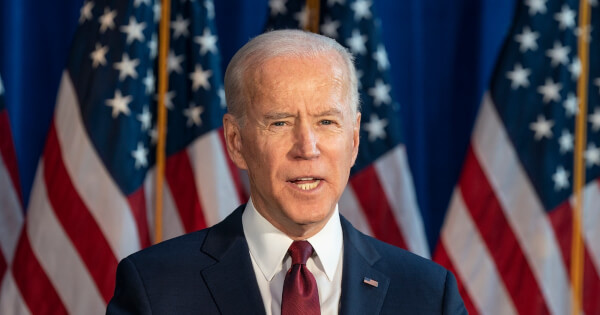President Biden Amplifies AI Safety and Security Measures with Executive Order
Rebeca Moen Oct 31, 2023 07:03
President Biden has issued an Executive Order on October 30, 2023, aiming to improve AI safety, security, and trustworthiness. The order requires rigorous testing of critical AI systems, advocates for data privacy legislation, and promotes AI's positive impact on healthcare, education, and the labor market.

On October 30, 2023, President Joe Biden signed a pivotal Executive Order aimed at reinforcing the safety, security, and trustworthiness of artificial intelligence (AI) technologies in the United States. This directive is part of the Biden-Harris Administration's broader strategy to foster responsible innovation, ensuring that AI serves as a tool for enhancing public welfare, economic growth, and national security.
In a bid to curb the potential risks associated with AI, the Executive Order mandates rigorous safety testing and information sharing for developers of influential AI systems. Under the Defense Production Act, creators of AI models that could significantly impact national security, economic stability, or public health are required to notify the federal government during the training phase, and share the outcomes of all red-team safety examinations. The National Institute of Standards and Technology (NIST) is entrusted with the task of formulating stringent standards for extensive red-team testing, ensuring AI systems are secure and reliable prior to public release. Additionally, the Department of Homeland Security will implement these standards across critical infrastructure sectors and establish the AI Safety and Security Board. This represents a monumental stride by a government to fortify the field of AI safety.
The Executive Order underscores the necessity of shielding Americans from AI-driven privacy infringements and fostering equity to prevent algorithmic discrimination. It advocates for bipartisan data privacy legislation and emphasizes the advancement of privacy-preserving techniques. The National Science Foundation will collaborate with a Research Coordination Network to expedite the development and adoption of privacy-centric technologies.
AI's potential to revolutionize healthcare, education, and consumer markets is acknowledged, alongside a recognition of the potential perils it poses to consumers and workers. The directive encompasses measures to enhance the responsible utilization of AI in healthcare, promote the development of resources for educators, and address the ramifications of AI on the labor market, advocating for principles and practices that prioritize workers' rights and well-being.
Recognizing the global dimensions of AI, the order emphasizes the importance of international collaboration in crafting robust AI governance frameworks. It alludes to ongoing and future engagements with various nations and international bodies to harmonize AI standards, ensure its safe deployment, and address global challenges.
The directive also outlines steps to modernize federal AI infrastructure and improve the government's AI deployment. This encompasses issuing guidelines for agencies' use of AI, streamlining AI procurement, and accelerating the hiring of AI professionals across federal agencies.
In summation, the actions orchestrated by President Biden mark a significant leap towards harnessing the potential of AI while safeguarding against its risks. The Administration expresses its commitment to ongoing collaboration with Congress and international allies to evolve a resilient AI governance framework.
Image source: Shutterstock.jpg)